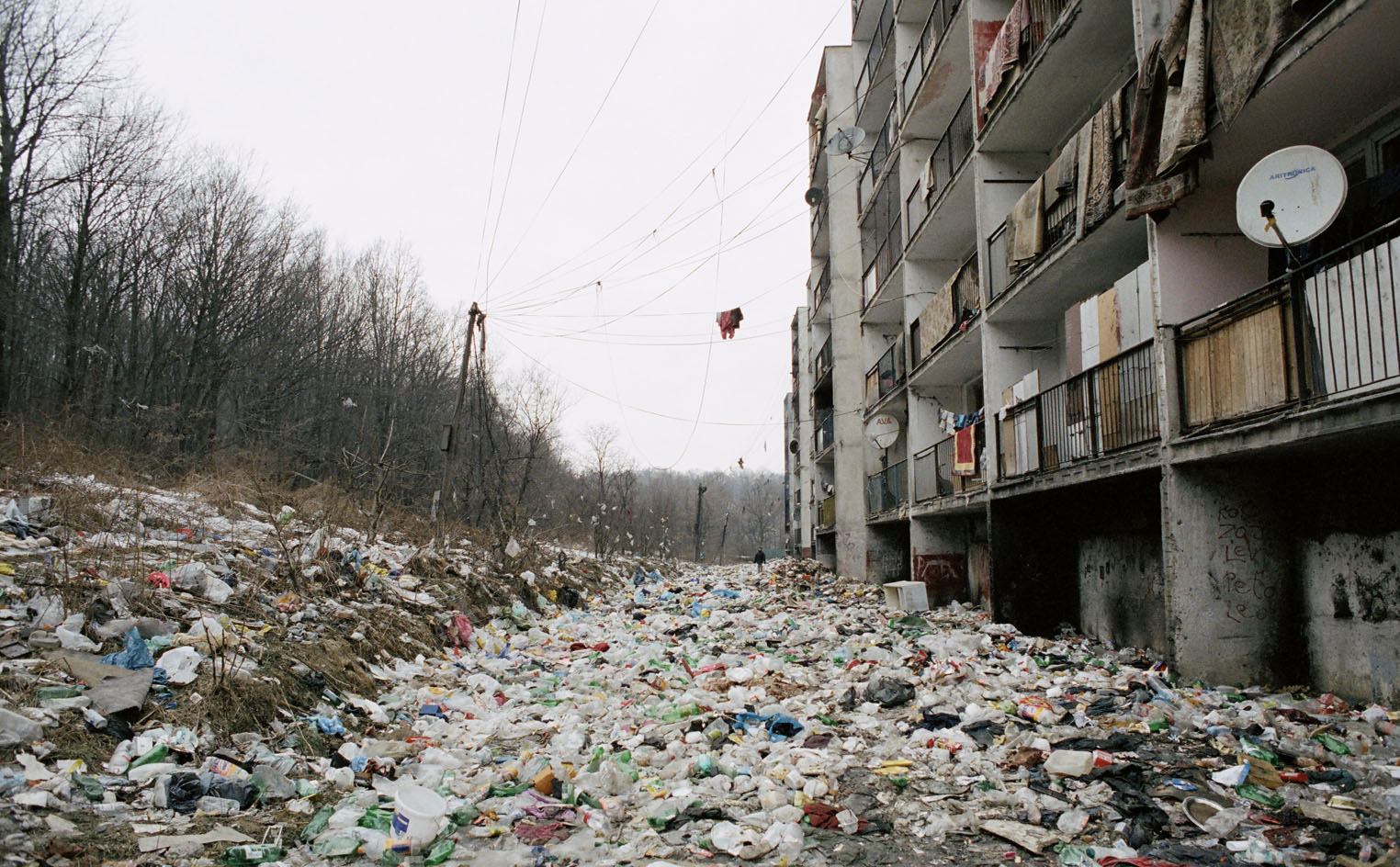Post by Bonobo on Mar 5, 2017 15:39:31 GMT 1
There`s a prevailing stereotype that gypsies prefer to live together in isolation from mainstream society. Of course, some individuals accept the values of society and become respected citizens, but many others are complacent with their counterculture.
Slovakia has the biggest Roma minority, about 500.000. Non-gypsy citizens are very critical about their compatriots.
Luník IX
From Wikipedia, the free encyclopedia
Luník IX is a borough in the city of Košice, Slovakia, in the Košice II district. It is located in the western-central part of the city, surrounded by the boroughs of Pereš, Myslava, Barca, Juh and Západ.
Characteristics
Lunik IX houses the largest community of Romani people in Slovakia.[2] Although originally built for 2,500 inhabitants, it is estimated that the population is now three times larger. Living standards are low, with services such as gas, water, and electricity cut off, as the majority of inhabitants are not paying rent or utilities fees.[3]
Health standards are low and diseases such as hepatitis, head lice, diarrhea, scabies, and meningitis are common.[3] Unemployment in the borough reaches almost 100 percent.[3] The borough has one elementary school and a kindergarten.[4]
Luník IX is serviced by a bus line, which stops only on selected bus stops. Boarding the bus is only allowed through the front door. Due to frequent attacks of aggressive residents, bus drivers deployed on the line receive a hazard pay.[5]
History
The Romani village close to the borough was demolished in 1979 and the Romani people were moved into Luník IX; in addition, there was a landfill nearby. As early as in the 1980s the Romani comprised half of the population, which was around 2,000.[4] Over time, the non-Romani population gradually moved away, with the Romani taking flats after their departure, and the borough turned into a Romani ghetto.[6]
In 1995, the city council of Košice created a plan for the living conditions of dodgers, the maladjusted, and people from illegally occupied flats around Košice.[4] They were to be moved into Luník IX, with "non-problematic" families being gradually moved out if they requested it. The realization of this plan is on-going.









Slovakia has the biggest Roma minority, about 500.000. Non-gypsy citizens are very critical about their compatriots.
Luník IX
From Wikipedia, the free encyclopedia
Luník IX is a borough in the city of Košice, Slovakia, in the Košice II district. It is located in the western-central part of the city, surrounded by the boroughs of Pereš, Myslava, Barca, Juh and Západ.
Characteristics
Lunik IX houses the largest community of Romani people in Slovakia.[2] Although originally built for 2,500 inhabitants, it is estimated that the population is now three times larger. Living standards are low, with services such as gas, water, and electricity cut off, as the majority of inhabitants are not paying rent or utilities fees.[3]
Health standards are low and diseases such as hepatitis, head lice, diarrhea, scabies, and meningitis are common.[3] Unemployment in the borough reaches almost 100 percent.[3] The borough has one elementary school and a kindergarten.[4]
Luník IX is serviced by a bus line, which stops only on selected bus stops. Boarding the bus is only allowed through the front door. Due to frequent attacks of aggressive residents, bus drivers deployed on the line receive a hazard pay.[5]
History
The Romani village close to the borough was demolished in 1979 and the Romani people were moved into Luník IX; in addition, there was a landfill nearby. As early as in the 1980s the Romani comprised half of the population, which was around 2,000.[4] Over time, the non-Romani population gradually moved away, with the Romani taking flats after their departure, and the borough turned into a Romani ghetto.[6]
In 1995, the city council of Košice created a plan for the living conditions of dodgers, the maladjusted, and people from illegally occupied flats around Košice.[4] They were to be moved into Luník IX, with "non-problematic" families being gradually moved out if they requested it. The realization of this plan is on-going.















